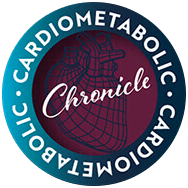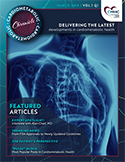The increasing impacts of cardiometabolic risks and cardiometabolic disease, including obesity, hypertension, type 2 diabetes, dyslipidemia, atherosclerosis, chronic kidney disease, have led to significant therapeutic innovations that have undoubtedly helped improve cardiometabolic health in the last decade. Conventional approaches to care, such as landmark clinical trials, updated clinical practice guidelines, and population-level efforts in screening and diagnosing cardiometabolic disease have helped to improve outcomes. However, a significant proportion of the population is still at a high-risk for developing cardiometabolic disease or for exacerbated effects from existing cardiometabolic conditions.
Since patients may respond differently to therapy, many conventional approaches are unable to answer these differences at the individual level, and several approaches to help bridge this gap and individualize therapy are emerging. One of such emerging cutting-edge approaches with significant advances in the last decade is healthcare technology. Inclusion of technology has brought a remarkable revolution in healthcare, for instance, health and fitness apps promote the idea of patient self-management and bring innovation in individualized health care by converging with genomics, genetics and systems biology. As the evidence-base for technology in healthcare, and specifically in cardiometabolic health, continues to increase, its utility is increasingly recognized by experts and incorporated as part of clinical practice guidelines. In this context, we had an opportunity to talk with Patrick Wayte, Senior Vice President of the American Heart Association’s Center for Health Technology & Innovation, about the role of technology in health care.






















